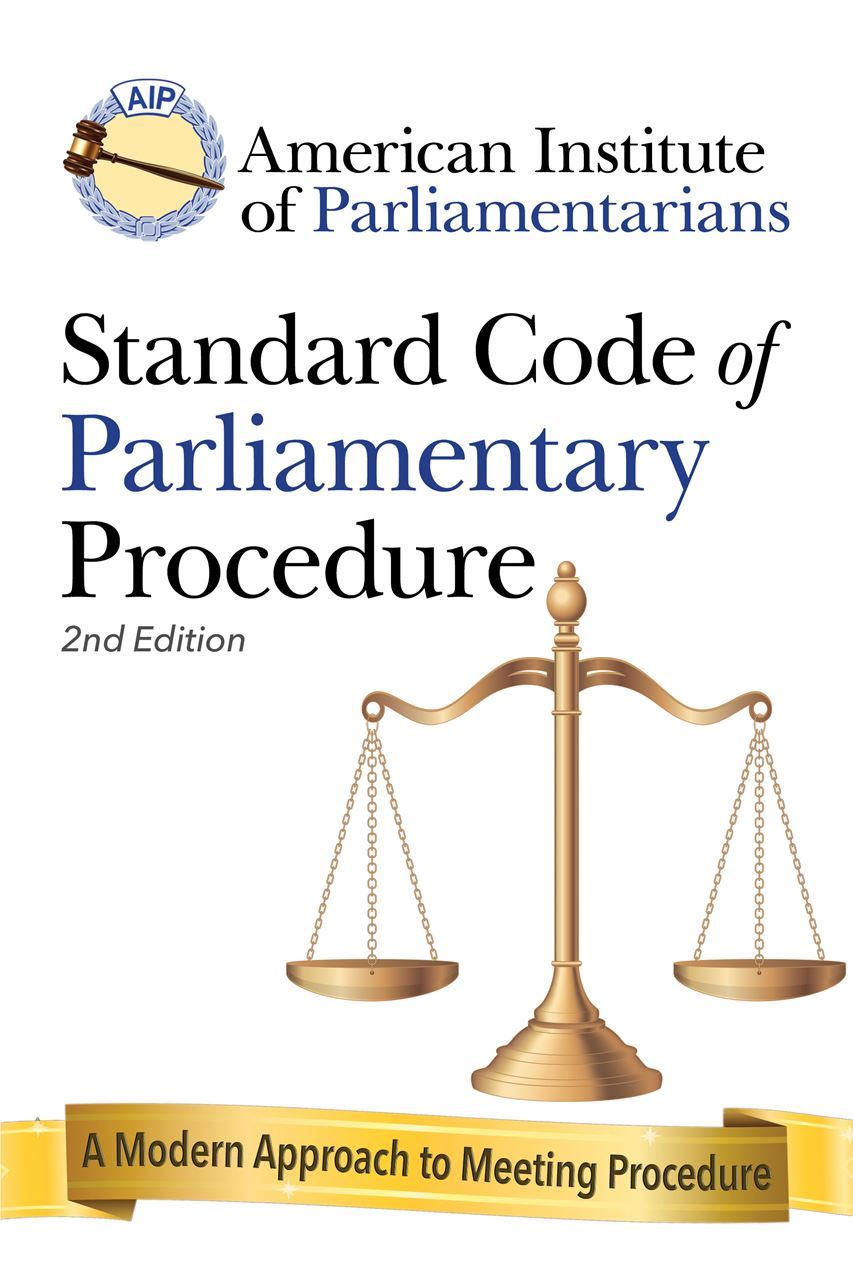Changes in the 2nd edition (excerpted from the Introduction)
Meeting procedures are sometimes viewed as esoteric, complicated, baffling, and irritating. Some consider them a waste of time. Yet, they are a valuable tool to be used in meetings to ensure fairness, justice, and consistency in making decisions in an environment where people have different opinions and are not shy in expressing those opinions. This book is written to untie what is complicated, to enlighten and simplify the procedure, and to make the procedure accessible, not just to a few, but to all members of an organization. It is also designed to dispel some of the common myths and misnomers about parliamentary procedure. It is easily readable, strips away unneeded and overly complex procedures, and does not burden the meeting attendee with archaic and obtuse language. The book has evolved with the ever-changing state of the common parliamentary law. Overall, it provides for a simplified, yet complete, set of procedural rules that can be used by organizations of all sizes.
Alice Sturgis, in 1950, produced a book on procedure titled Sturgis’ Standard Code of Parliamentary Procedure that dramatically simplified meeting procedures with the intent of making the rules understandable by all. The procedure was simple, used plain language, dropped archaic procedure and terminology, yet was complete and usable by most organizations, and was based in the law. The American Institute of Parliamentarians (AIP) continues the philosophy of Alice Sturgis through the book entitled American Institute of Parliamentarians Standard Code of Parliamentary Procedure, now in its second edition.
The legal citations throughout this book support the underlying philosophy of specific concepts and rules. Two major changes in this book are based on evolutions in the state of parliamentary procedure, as well as the world. The pandemic in 2020 clearly demonstrated that the default position regarding electronic meetings should be changed from “not allowed unless stated in your governing documents” to “allowed unless prohibited in your governing documents.” Many organizations were simply unable to meet due to this prohibition in most parliamentary authorities.
A second major change is the addition of default rules when the organization’s governing documents are silent on a matter. The experience of the authorship team led to the conclusion that despite being stated that certain information “should be included” in the governing documents, it almost never was. These default rules will not suit every organization, and each organization is free to deviate by developing standing rules of order.
This authorship team resolved to revise the book to represent common, not theoretical, practice for both peaceful and contentious meetings. The team committed to honoring traditional parliamentary writings as much as possible while not being so resistant to change that it could not embrace innovation and change such as occurred with the introduction of the Gordian Knot and Adopt in Lieu of Motions in the last edition. One practice, that of allowing the consideration of a motion or topic informally, was deemed to no longer be sound practice and was removed.
Alterations of procedure to prevent their abuse or misuse were implemented as well as clarification on what makes up unfinished business. Additional information, innovations, and changes from prior parliamentary books are introduced in the hope of providing a useful reference that is consistent with modern meeting needs and practices. These include:
Changes related to governance and fundamentals:
- changing the default provision to amend bylaws changed from previous notice and majority vote to previous notice and a two-thirds vote
- removing member discipline information from “Rights and Responsibilities of Members and of Organizations” to form a new chapter
- establishing a process for handling individual bylaw amendments to existing bylaws should a revision fail
- providing sample emergency bylaws
Changes related to motions:
- replacing the concept of restricted debate with a requirement that debate be germane to the motion at hand;
- making Close Debate and Vote Immediately amendable as to the motions to which it applies;
- removing the debatability of motions that limit debate;
- removing the concept of a substitute amendment because a substitute was already treated as an amendment to strike out and insert; and
- establishing that after debate has been closed, Factual Inquiries are not permitted, although a Parliamentary Inquiry may be.
Changes related to meetings:
- clarifying the methodology and motions used to create a continued meeting;
- clarifying rules related to the formation of a convention or house of delegates, particularly those related to credentials;
- providing sample rules for a hybrid meeting;
- establishing electronic notice as a default permission, unless prohibited by statute or the bylaws;
- establishing that electronic meetings are allowed, unless prohibited by statute or the bylaws; and
- providing that a change from in-person to virtual, or vice-versa, does not invalidate a notice, provided all members are notified.
Finally, great effort was made to adjust nomenclature to the common meaning of the words and eliminate the overuse of the word special.
- Specific Main Motions were changed to Specific-Purpose Main Motions.
- Special Orders were renamed Scheduled Orders.
- Standing and Special Rules of Order were changed to Standing Rules of Order and Temporary Rules to describe their purposes more accurately.

